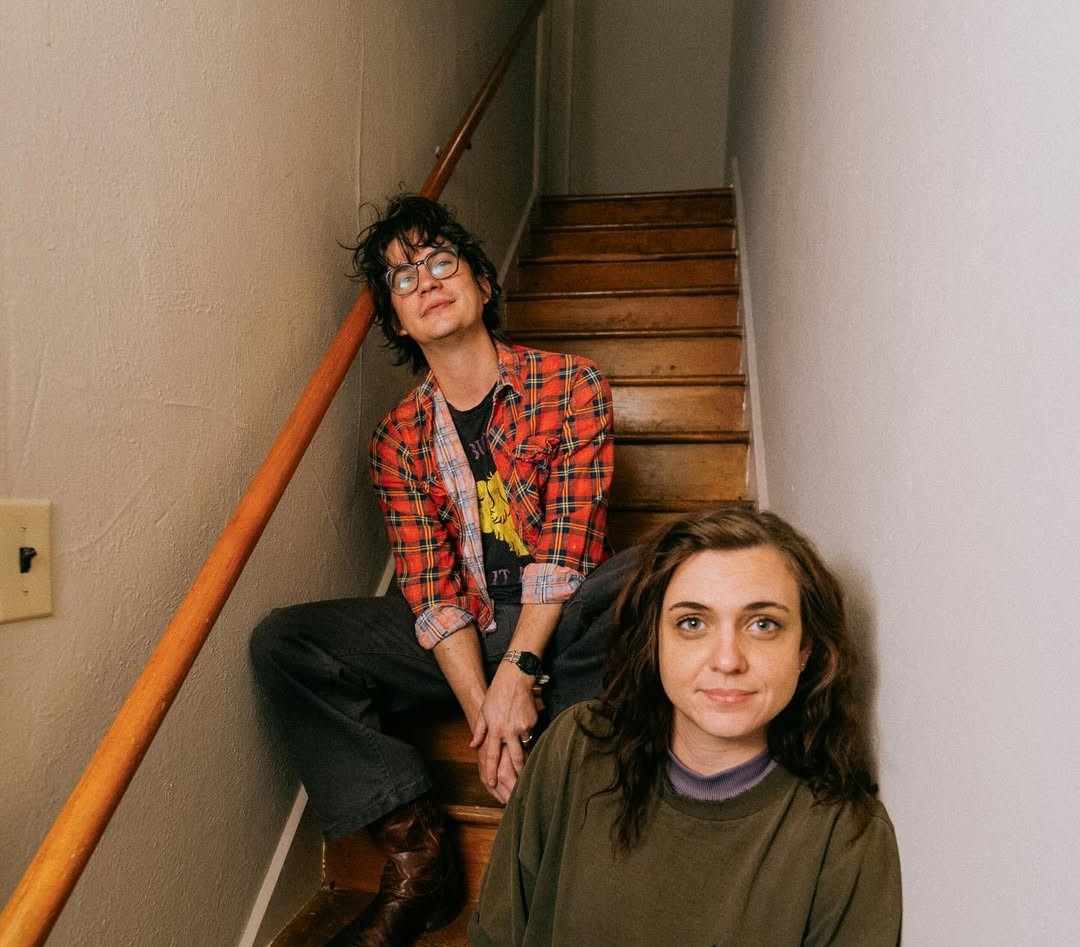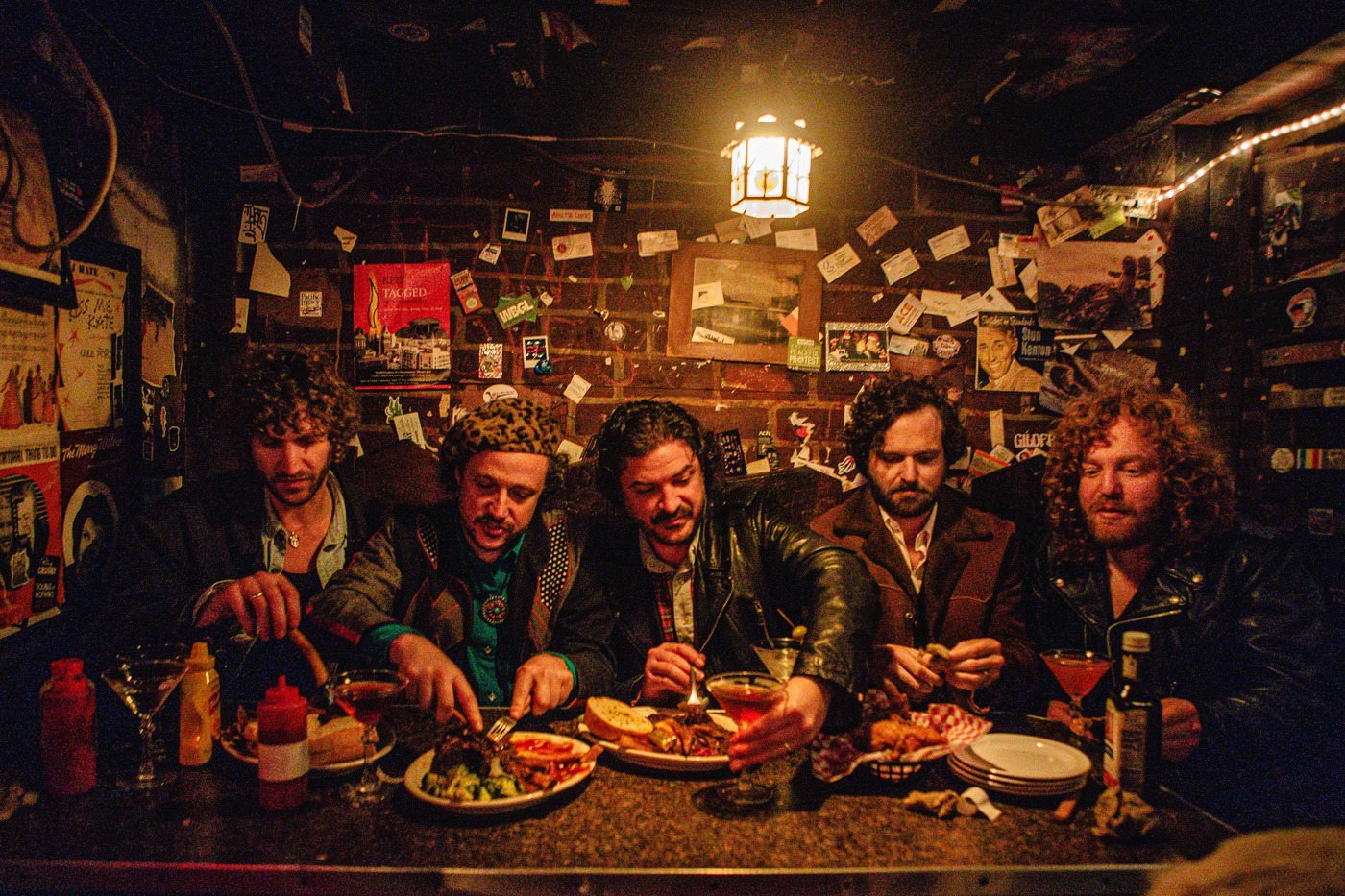Nova Express | Interview | “Space Khmer”
Nova Express was an eclectic underground band from Mannheim, Germany, blending punk, psychedelic rock, and experimental music.
Formed in the late 1970s, they were fixtures in underground circles known for their improvisational style and energetic live performances. Their debut album, ‘Space Khmer’, released in 1987, resonates with echoes of Amon Düül II and other early 70s bands, making them one of the most overlooked groups, especially for fans of 60s organ-driven underground psych. In the following interview, we discuss with three members of the band.
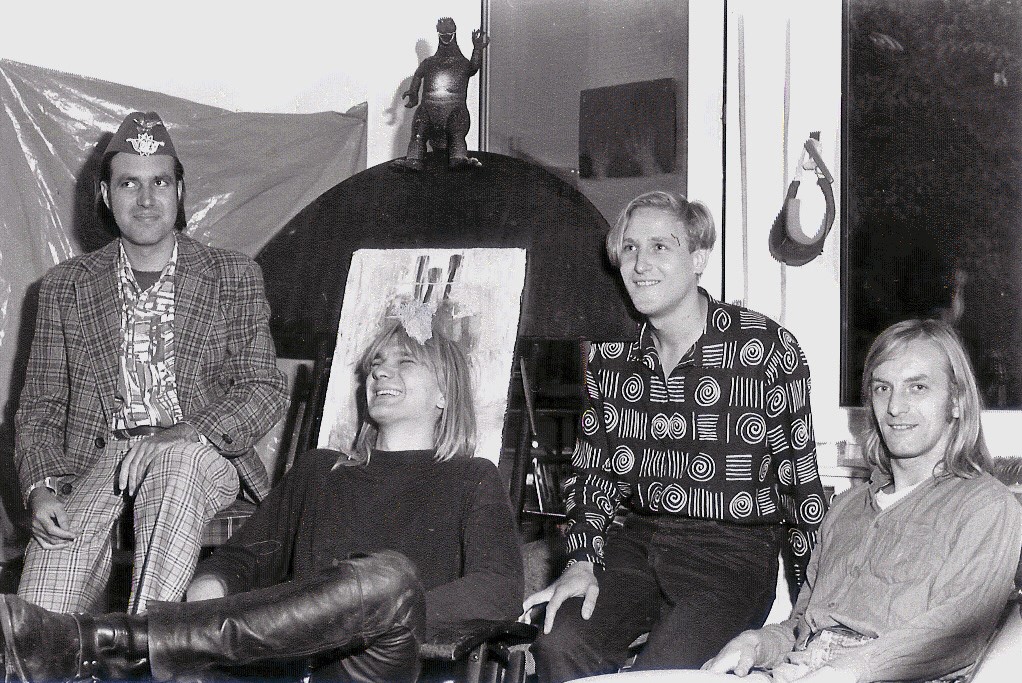
“Everything was improvisation”
Would you like to share about your upbringing? Where did you all grow up? Tell us about daily life back in your teenage years.
Friedrich F.: I was a boring middle-class kid in a boring suburb of Mannheim. At the age of 14, I became a punk and my career began to start.
H.-P. Gübert: Mannheim was definitely a good place for a teenager in the early seventies. Every weekend, there were parties. In the summer season, we spent a lot of time at the beaches of the Rhine River and nearby lakes. This time was highly influenced by the hippie culture, and there was always a good supply of high-quality acid.
Ingo Zielske: I was born in a village near Mannheim as a middle-class child. At the age of 10 or 11, I began to listen to Beat and Rock music. My first single was ‘Do It Again’ by the Beach Boys.
Was there a certain scene you were part of, maybe you had some favourite hangout places? Did you attend a lot of gigs back then?
Friedrich F.: Yes, in the 80s there was a familiar underground scene in Mannheim, not only musicians but also painters, performers, and a lot of other freaks. The headquarters was the Cafe Old Vienna. I hung out there day and night. Later on, we spent the nights in a club called Hard Rock. Both were located in Mannheim. Our manager, Sybille, was very active and got a lot of gigs and festivals for us all over Germany.
H.-P. Gübert: Our base was the youth center in Mannheim’s inner city. For us kids, music was the most important thing, and Mannheim was the right place. You can say there was at least one interesting concert within a week. Tickets were cheap; even concerts of international bands were affordable. This was the time of Krautrock, and formations like Guru Guru or Kraan usually played several times a year in the Mannheim area.
Ingo Zielske: When I was 15 or 16 years old, I attended my first concerts: Blues rock, progressive rock, and Krautrock.
When did you begin playing music? What was your first instrument? Who were your major influences?
Friedrich F.: Well, I started to make some music with my first band, Wincing Nerve, at the age of sixteen or seventeen. Playing an instrument never interested me. In the beginning, I was sure that I would become a famous shouter. First of all, it started with every kind of punk music, but for the record, my first album was ‘Fireball’ by Deep Purple. Then it changed a bit from that punk stuff, and I listened to Chrome and Hawkwind. Later on, I became a frenetic fan of Saint Vitus.
H.-P. Gübert: As a child, I had some lessons in playing the home organ, but this instrument didn’t sound like a Hammond; it just sounded odd. When I was about 15, I purchased an electric guitar at a pawn shop. Within a year, I got a small amplifier and effect devices: a Big Muff fuzz, a wah pedal, and a Watkins Copycat echo unit. We jammed in the high school’s basement, playing the main theme of ‘Set the Controls for the Heart of the Sun’ three times, then creating interstellar sonic attacks for the next two hours. I was too lazy to learn chords and scales; the effect devices did the job. At that time, Hawkwind was my favorite band.
Ingo Zielske: I started to play drums when I was about 19, and a short time later, the punk movement came to our town. This changed everything. Losers like us could suddenly form a band without any musical education.
If we would step into your teenage room, what kind of records, fanzines, posters et cetera would we find there?
Friedrich F.: Comics, comics, comics, and comics, and punk records. I was addicted to these underground zines like U-Comics, Heavy Metal, and also to my favorite artists: Mr. Druillet, Moebius, Corben, and Darrow. The work of these artists influenced me very intensely.
H.-P. Gübert: Not so much stuff, unfortunately vinyl records were quite expensive. For a long time in my youth, a cassette tape recorder was the only tool to hear music.
Ingo Zielske: I remember records by Led Zeppelin, Pink Floyd, Zappa, Captain Beefheart, Guru Guru, Gong, and stuff like that.
Was Nova Express your very first band or were you involved with any other bands?
Friedrich F.: The first band I was involved with, where I did the vocals, was called Wincing Nerve. It was described as a mixture of Joy Division and noisy punk music.
H.-P. Gübert: There was a predecessor of Nova Express called Neue Heimat. We were not aware that another German band used the same name, but this didn’t matter as this formation was short-lived and split into two bands: Chor der Gefangenen and Nova Express. Ingo played drums in both formations. I did my first gigs with Neue Heimat.
Ingo Zielske: In 1979, maybe one year after I bought my first drum kit, some friends and I founded the band Neue Heimat, an experimental No Wave Noise project, with Uli Neitsch on vocals, Daniela on vocals, Gübbi on guitar, Ulf Kloss on guitar, Steffen Schmidt on bass, and me on drums.
Tell us about Chor der Gefangenen and the vinyl release from 1981, ‘Im Dschungel des süßen Lebens / Gemeinsam schaffen wir’s’….
Ingo Zielske: After a few months, Neue Heimat was history, and Uli, Ulf, and I founded Chor Der Gefangenen. We had about 2 or 3 gigs a month, mostly at punk festivals in and around Mannheim, together with bands like The Sucks, Ärgen, Trümmerfrauen, Nützliche Idioten, Drahtkur, and many more.
At that time, the Rock On record store was an important meeting point for the local punk scene. One day, some guy named Jochen Mostaff had the fabulous idea to release a Mannheim punk sampler. Runde Sache Records was founded.
Every punk band could contribute one song without quality control. Chor Der Gefangenen was represented with the song ‘Modernes Wohnen,’ which was our first vinyl release.
We also released a music cassette titled ‘Live in Rastatt,’ which contained a complete live concert.
In 1981, Runde Sache Records decided to issue a split LP with Nützliche Idioten and Chor der Gefangenen. Our part was recorded in a small studio run by Walter Seyffer, the former drummer of Nine Days Wonder.
After about two years, Chor der Gefangenen split up. Ulf and I started a new band called Andere Tiere als, but there don’t exist any recordings of that time.
In 1984, Gübbi, Robert, Fritz, and I started Nova Express, and a new chapter began.
Can you elaborate on the formation of the Nova Express?
Friedrich F.: There was a singer before me named Maddl (RIP). For a very short time, maybe for one or two gigs, we had two singers: a girl named Ingrid and me.
H.-P. Gübert: I can’t remember exactly, but the bass player and vocalist changed at least once until we got the final formation.
What influenced Nova Express’ sound?
Friedrich F.: The 60s, and mostly using a lot of drugs and starting to play music.
H.-P. Gübert: The eighties were a period with a wide range of underground music: bizarre stuff like Pere Ubu, sinister explorations like Throbbing Gristle, new guitar bands like Sonic Youth. There was a wide field of new sounds, and there were still some all-time favorites like Can.
“We played and destroyed every place they let us in”
What kind of places did you play? What are some of the bands you shared stages with?
Friedrich F.: We played and destroyed every place they let us in, mostly little seedy clubs. I remember especially the Gifthüttn in Munich; before the soundcheck, we had a bad fight with some Bavarian locals, but we survived. We played at big open-air festivals in Mannheim, and in such big halls and festivals as Borelli Grotte, Alte Feuerwache, Sulfur Sonic Festival in Mannheim, and the Zakk in Düsseldorf. We also played at Music Messe in Cologne, mostly with a psychedelic light show run by ourselves or a collective called LSD. I remember the gig with the Miracle Workers.
H.-P. Gübert: Mainly, we played small clubs, often with bands categorized like us as underground or neo-psychedelic.
What can you tell us about Syndicate Records / EFA?
Friedrich F.: Nothing… I’m not interested in that business. It was Sybille, our manager’s job to contact the record labels and make the contracts.
H.-P. Gübert: I was never interested in business matters.
Ingo Zielske: I guess none of us were interested in business; after the release of the LP, we lost contact.
How did you begin working on your debut album, ‘Space Khmer’? What’s the story behind your debut album? Where did you record it? What kind of equipment did you use and who was the producer? How many hours did you spend in the studio?
Friedrich F.: We recorded the ‘Space Khmer’ album (1987?) after finishing work on ‘Durchbruch in den grauen Raum.’ As I remember, there was no big story behind the album. We had new songs and wanted to record and release them, hoping to get famous… hahaha.
The recording studio was in an empty and dilapidated factory building at the harbor area in Mannheim with no heating. The studio was in the canteen room and owned by two friends of ours. Sorry, I forgot their names. We recorded it ourselves. Mr. Megus (RIP) played the 12-string guitar on ‘Travelling.’
For technical details, equipment, and amps, there might be more information from Hans-Peter, the guitar mind.
I think we spent 5 days and nights at the studio, including recording and mastering.
H.-P. Gübert: Basically, I would call Nova Express a jam band. But not like blues or jazz sessions, where people are playing solos on chord changes. Everything was improvisation. In the practice room, we played riffs again and again (sometimes for hours); everybody played what he wanted. The result was an idea for a song. Idea + lyrics = basic song; basic song + some decorative elements (intro, breaks, solos) = final song. Every member was the composer of his part, so every song had four composers.
The first album was recorded at a non-professional studio. We got help from our friend Megus; he operated the tape recorder (8-track Tascam). There was no producer and no qualified technician. I can’t remember exactly, but I guess recording and mixing took about 5 days.
Ingo Zielske: In the beginning, we spent a lot of time in the rehearsal room, improvising for hours, experimenting with sounds, rhythms, and voices. After a while, this raw material concentrated into a real song with verses, choruses, solos, or a “strange part.”
I’m not sure if there was something like an exact plan; the process was free-flowing with an open result. I think we had 3 or 4 days in the studio.
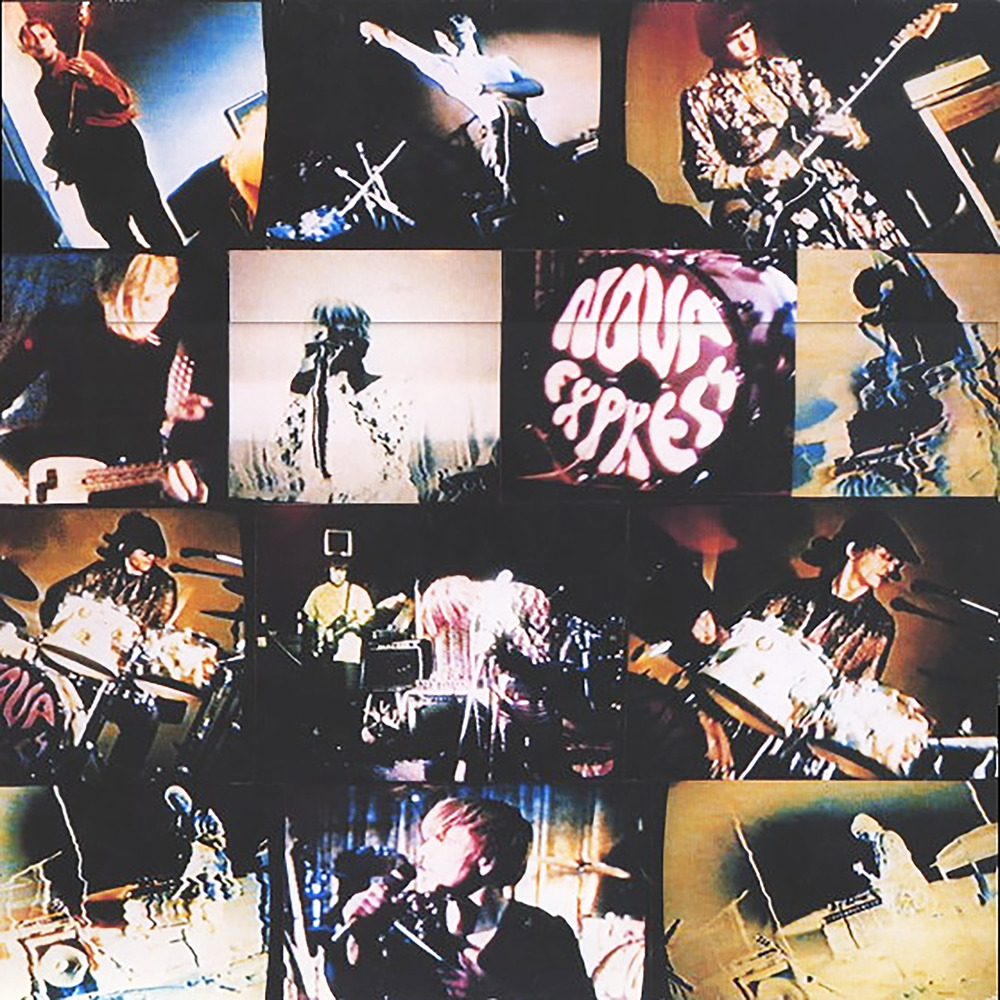
Would love it if you could provide insight on the albums’ tracks?
H.-P. Gübert: The tracks were simply our live performance program, but everything could be subject to change. So, one song could last 5 minutes at one performance and 15 minutes at the next performance.
Were you inspired by psychoactive substances like LSD at the time of writing the album?
Friedrich F.: I was inspired by all sorts of substances, both natural and chemical, most of the time.
H.-P. Gübert: From the seventies on, I was an LSD aficionado. Basically, all my thinking and decisions were inspired by hallucinogenic substances, but not every member of the band liked this category of drugs.
Ingo Zielske: Some people say I did, but I’m not sure.
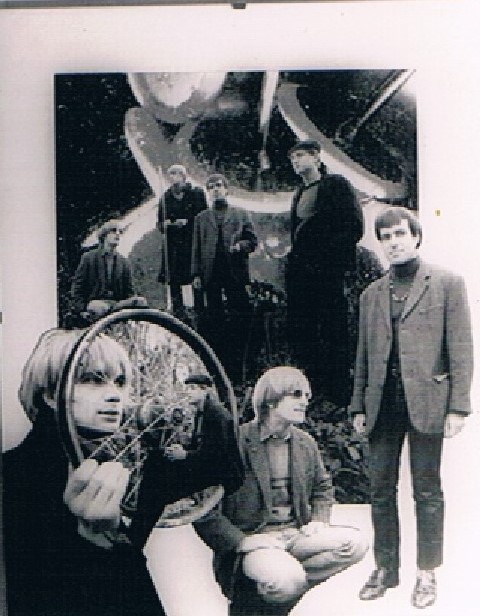
What would be the craziest gig you ever did?
Friedrich F.: Behind the Iron Curtain, at the Black Hole in Budapest, the crowd was totally crazy and beyond, driven mad by high-volume vodka, hashish, and other stuff, I think. After the show, we got hammered with the fans and booze on stage.
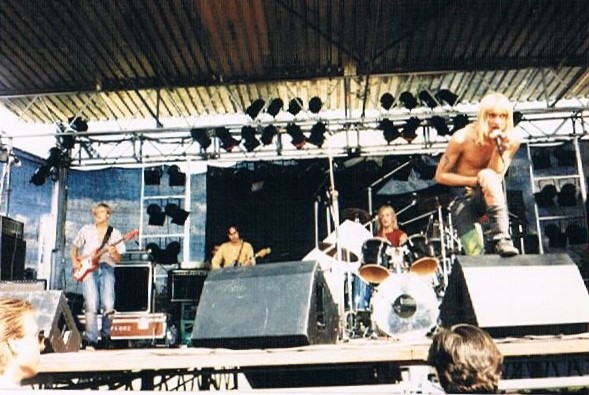
On the other hand, I remember a gig at Die Röhre in Stuttgart. We were supporting the Miracle Workers from LA. After the second song, the E-bass string tore, and we played on with only 3 strings. In the next song, another bass string snapped. We had no extra bass guitar on stage. There was a very long pause during the 30-minute set to change those damn bass strings; the audience was sold out and stared at us a lot. We smoked and then jammed for a few minutes without bass. It was horrible.
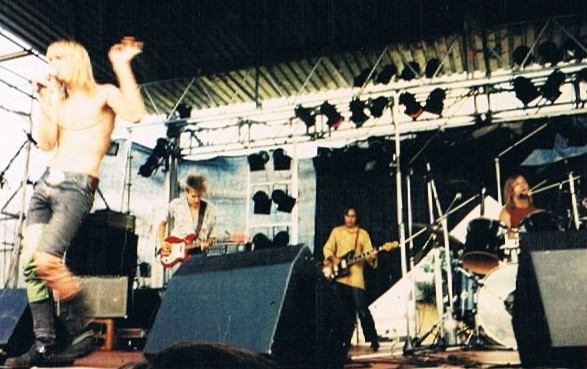
One more thing. We were on the way to Budapest. At the Hungarian border, they wouldn’t let us in because Robert the bassist’s passport had expired. We had to go back to Vienna to the embassy to get a visa for him. This took us a lot of time, so we missed our gig in Szeged. I wanted to kill him!
H.-P. Gübert: There were a lot of crazy gigs, maybe 30 percent of our gigs were somewhat strange.
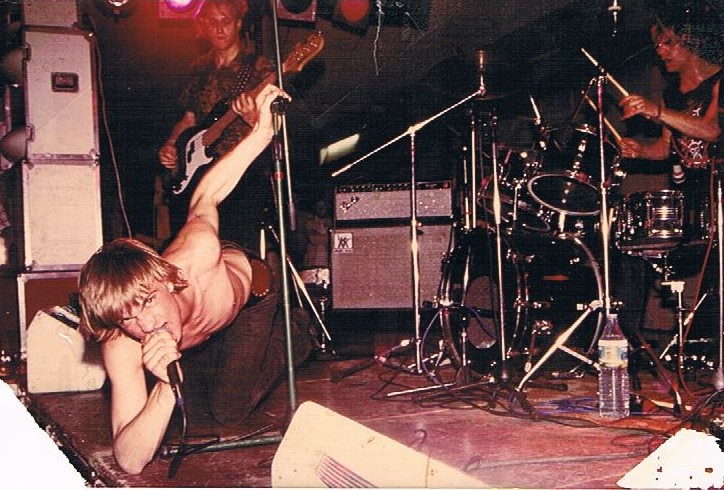
Was there a certain concept behind the album?
Friedrich F.: I don’t think so, not from my perspective.
H.-P. Gübert: Definitely not. There was no concept behind the album, no concept behind the songs, and no concept behind the band. We didn’t discuss concepts or styles; we just played.
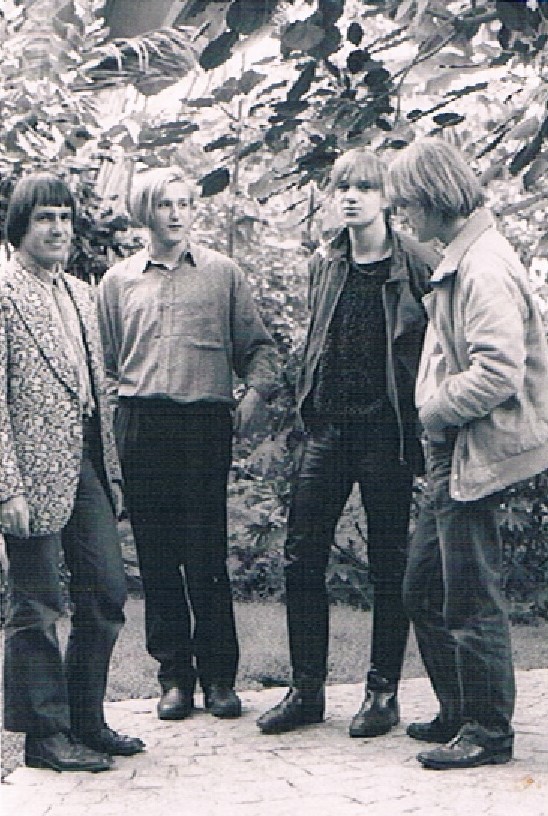
What can you tell us about Heartache Transplant Records? Tell us about your sophomore record, ‘Once In The Blue Moon’. What was its creation process like?
Friedrich F.: Sybille made contact with HTR. The meeting was in Saarbrücken. On a cold and snowy winter day, we drove over to sign the contract. Dietmar, the manager of HTR and an ex-army diver, had that silly underwater cover in mind and insisted on it. Strange guy.
H.-P. Gübert: Everything said about the first album applies to the second. It was just our life program during that period. The sound was somewhat clearer as we recorded in a professional studio with a 16-track recorder.
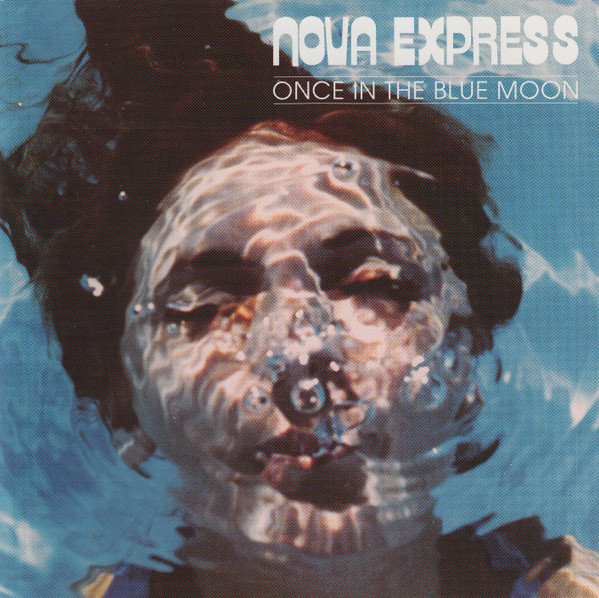
There’s a tape listed on Discogs, ‘Durchbruch In Den Grauen Raum’. Can you share some info about when it is and what kind of material is on it?
Friedrich F.: We recorded the songs on a Fostex 4-track tape recorder at our rehearsal room in a bunker in Ludwigshafen in 1985. These were the first songs we ever wrote.
H.-P. Gübert: As far as I remember, this tape contained stuff recorded in the practice room with a cassette tape recorder.
Ingo Zielske: We recorded ‘Durchbruch’ in the rehearsal room about one year before ‘Space Khmer’ with a 4-track cassette recorder. Some songs from ‘Durchbruch’ can also be found on ‘Space Khmer.’
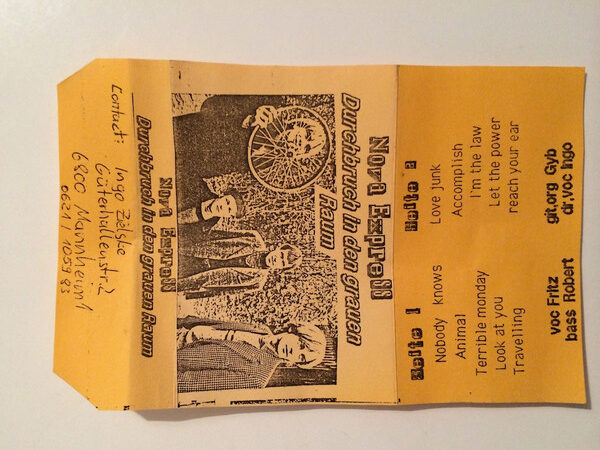
Tell us about the instruments, gear, effects et cetera you had in the band.
Friedrich F.: The effects guru and instrument wizard was Hans-Peter; he can tell you a lot. We only had one song where I played the trombone (horn). It was very funny.
H.-P. Gübert: Throughout my time with Nova Express, I used a Fender Jazzmaster. Initially, it had the original single-coil pickups on the first album, and later I switched to Gibson P100 humbuckers. My amplifier was a British solid-state amp labeled Maine. Over time, my choice of effects devices evolved. The most crucial tool for me was the echo unit, which transitioned from a Watkins Copycat (the only affordable tape echo at the time) to an electronic Ibanez device. I never used standard tuning; I always used open tunings. For keyboards, I used a Casio 1000p.
Ingo Zielske: I played a Ludwig drum set.
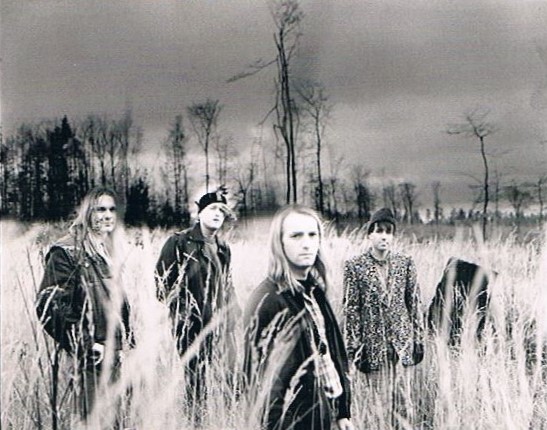
What happened to Nova Express after the release of your second album? For how long did you stay together?
Friedrich F.: Hans-Peter left the band after ‘Once in a Blue Moon.’ After a while, he moved away from Mannheim to the hinterland woods. We played together for 8 or 9 years. After Hans-Peter, we had another guitarist, Mike, for 2 years. Then it was over. For the record, ‘Once in a Blue Moon’ was the 3rd release by Nova Express. The 2nd album, called ‘Moonquake Extasy,’ was never released by SST… but that’s another story.
H.-P. Gübert: I can’t remember exactly, but I do recall that getting gigs became more and more complicated. Guitar-based music was becoming old-fashioned; young people preferred electronic sounds.
Ingo Zielske: After Gübbi left the band, we tried to continue with a new guitarist, Mike, but it wasn’t the same, and eventually, it was time to say farewell.
In 2017, we had a revival gig at the Sulfur-Sonic festival in Mannheim.
What other projects / bands did members of Nova Express have later on? Are you still in touch?
Friedrich F.: After the end of Nova Express, I founded a new psychedelic hardcore band called Guttersluts with Norbert Schwefel (RIP). We released one CD titled ‘Bitches of Quality.’ I’m in contact with Ingo the drummer, but I haven’t heard anything from Robert or Hans-Peter in the last few years. I’m also working with the Fat Greatls, and our latest vinyl release is ‘Roher Hammel.’
H.-P. Gübert: Sometime in the early nineties, I got bored of my guitar playing. It felt like I was playing the same phrases over and over again. So, I stopped making music. I passed the Jazzmaster to my wife, Barbara Lahr, and from then on, she never used another guitar.
By the end of the nineties, my wife and I moved to the countryside, and contact with band members became sporadic.
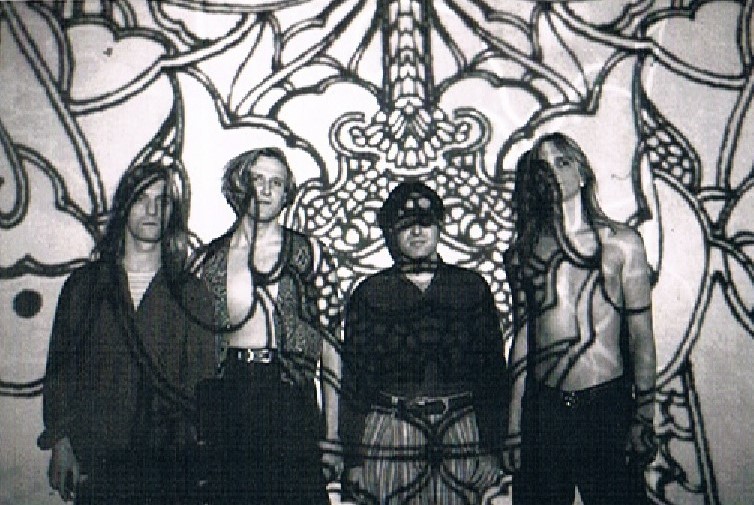
You’re part of Apach-o-matic? What about Charles Lemming and the Heart Attack, Multi Relax Foundation. Would love to hear more about this.
Friedrich F.: For over 20 years now, I’ve been making music with Ingo in the sexiest band in the entire universe, the Multi Relax Foundation. Later on, we’ll send you our vinyl repertoire of MRF.
Ingo Zielske: For several years now, I’ve been the drummer of the Multi Relax Foundation and Apach-o-matic.
The Multis consist of Nova Express singer Fritz, Martin (guitar), Steffen Schmidt (bass), whom I’ve known since childhood, and Tschogy McWolf on organ. Most of our songs are 60s and punk covers.
Apach-o-matic is a pure surf band, although most of our songs are original compositions. We recently released a 6-song compact cassette, which you can find here: Apach-o-matic Bandcamp.
Both the Multi Relax Foundation and Apach-o-matic occasionally still perform live gigs.
During the time of Nova Express, I was also the temporary drummer for Charles Lemming, which was something like a songwriter project with a band.
Looking back, what was the highlight of your time in the band? Which songs are you most proud of? Where and when was your most memorable gig?
Friedrich F.: Everything was a highlight back then. I always felt lucky and overwhelmed to spend my time and life with these guys, making music, playing gigs, and much more. Thanks.
H.-P. Gübert: Basically, the whole time was a lot of fun. My favorite song was ‘Pocket Mystery’ because you could play the solo absolutely free-form. The most memorable gig? There was a festival in Cologne where the light show used exactly the same tools as were used at Fillmore West in the late sixties.
Ingo Zielske: I really love the ‘Space Khmer’ album. I remember that time as a kind of space trip—adventurous, with a feeling of freedom and exciting live performances.
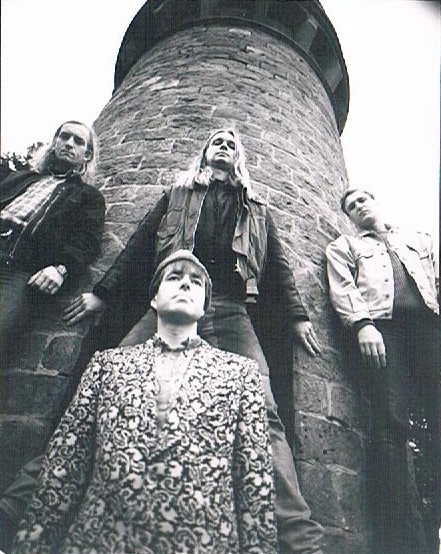
Thank you for taking your time. Last word is yours.
Friedrich F.: Peace!
H.-P. Gübert: Thank you for your interest!
Ingo Zielske: Since 1995, I’ve also been running a small bar in Mannheim called Cafe Blau, hosting wild DJ parties and live concerts! Just check out Blau-Jungbusch. Thanks again for your interest and patience!!!
Klemen Breznikar
Headline photo: Nova Express



